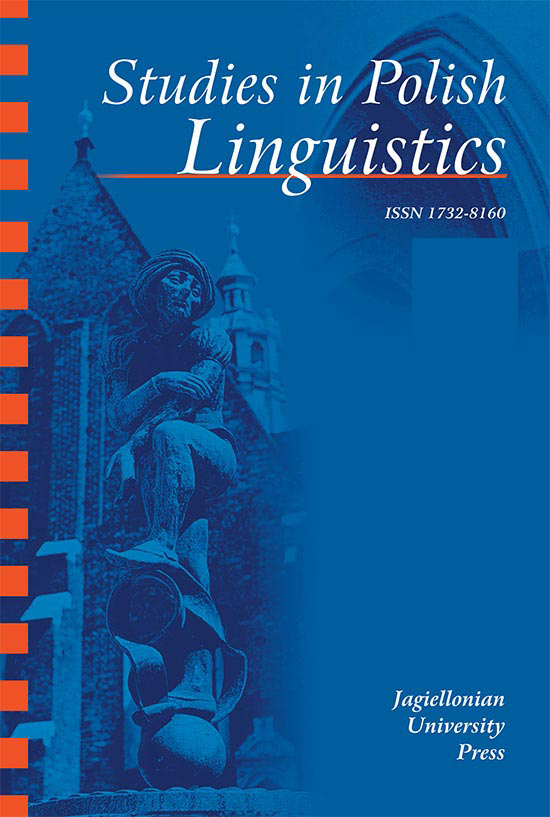Passivisation of Polish Object Experiencer verbs vs. the unaccusativity hypothesis (Part 1)
Passivisation of Polish Object Experiencer verbs vs. the unaccusativity hypothesis (Part 1)
Author(s): Anna Bondaruk, Bożena Rozwadowska, Wojciech WitkowskiSubject(s): Language studies, Theoretical Linguistics, Applied Linguistics
Published by: Wydawnictwo Uniwersytetu Jagiellońskiego
Keywords: Object Experiencer verbs; unaccusatives; passivisation; expletives; Polish
Summary/Abstract: The paper aims to verify Landau’s (2010) claim that the inability of stative Object Experiencer (OE) verbs to form verbal passives is directly linked to their unaccusativity. In the first part of the article it is shown that given the polysemous nature of OE verbs in Polish, the collected corpus data confirm that unambiguously stative OE verbs do not form verbal passives in Polish. However, it is argued that this fact cannot be taken as evidence for the unaccusativity of these predicates. A number of arguments are provided against the claim that Polish stative OE verbs are unaccusative. Firstly, in contrast to their English equivalents, stative OE verbs in Polish cannot co-occur with an expletive subject. Secondly, the accusative case of the Experiencer is clearly structural in Polish, as it is affected by the Genitive of Negation. The second part of the article (to be published in a forthcoming issue of this journal) focuses on the mutual hierarchy of the two arguments of OE verbs: the Experiencer and the Target/Subject Matter (T/SM). The evidence based on Condition A, pronominal variable binding, and Condition C effects is inconclusive, and hence does not allow us to determine which of the two arguments is projected higher in the structure. For this reason, it is assumed after Landau (2010) that the Experiencer is projected higher than the T/SM. The overall conclusion reached in the paper is that stative OE verbs in Polish are not syntactically unaccusative, and therefore their immunity to the verbal passive must be sought elsewhere. The answer to the question why stative OE verbs do not form verbal passives crucially relies on their having a complex ergative structure as in Bennis (2004), where both arguments are internal, while the external argument is missing altogether.
Journal: Studies in Polish Linguistics
- Issue Year: 12/2017
- Issue No: 2
- Page Range: 57-73
- Page Count: 17
- Language: English

